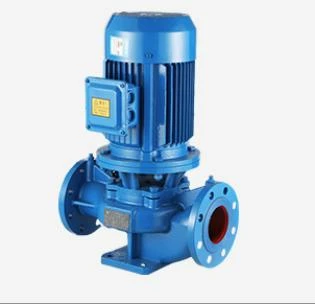Icelandic
- Afrikaans
- Albanian
- Amharic
- Arabic
- Armenian
- Azerbaijani
- Basque
- Belarusian
- Bengali
- Bosnian
- Bulgarian
- Catalan
- Cebuano
- Corsican
- Croatian
- Czech
- Danish
- Dutch
- English
- Esperanto
- Estonian
- Finnish
- French
- Frisian
- Galician
- Georgian
- German
- Greek
- Gujarati
- Haitian Creole
- hausa
- hawaiian
- Hebrew
- Hindi
- Miao
- Hungarian
- Icelandic
- igbo
- Indonesian
- irish
- Italian
- Japanese
- Javanese
- Kannada
- kazakh
- Khmer
- Rwandese
- Korean
- Kurdish
- Kyrgyz
- Lao
- Latin
- Latvian
- Lithuanian
- Luxembourgish
- Macedonian
- Malgashi
- Malay
- Malayalam
- Maltese
- Maori
- Marathi
- Mongolian
- Myanmar
- Nepali
- Norwegian
- Norwegian
- Occitan
- Pashto
- Persian
- Polish
- Portuguese
- Punjabi
- Romanian
- Russian
- Samoan
- Scottish Gaelic
- Serbian
- Sesotho
- Shona
- Sindhi
- Sinhala
- Slovak
- Slovenian
- Somali
- Spanish
- Sundanese
- Swahili
- Swedish
- Tagalog
- Tajik
- Tamil
- Tatar
- Telugu
- Thai
- Turkish
- Turkmen
- Ukrainian
- Urdu
- Uighur
- Uzbek
- Vietnamese
- Welsh
- Bantu
- Yiddish
- Yoruba
- Zulu
Telephone: +86 13120555503
Email: frank@cypump.com
nóv . 16, 2024 19:27 Back to list
slurry screw pump
The Role and Advantages of Slurry Screw Pumps in Industrial Applications
Slurry screw pumps are an essential component in various industrial applications, particularly in the mining, construction, and wastewater treatment sectors. These pumps are specifically designed to handle thick, viscous fluids that contain solid particles, making them ideal for transferring slurries—mixtures of liquids and solids.
Understanding Slurry Screw Pumps
A slurry screw pump operates on a simple yet effective principle. It utilizes a rotating screw mechanism to move the slurry through a designated path. As the screw turns, it creates a pressure differential that causes the slurry to flow through the pump and towards its destination. The design of the pump minimizes turbulence, which helps in preserving the integrity of the solid particles being transported.
These pumps are characterized by their ability to handle a wide range of material types and sizes. They can efficiently transfer a slurry composed of sand, clay, or other coarse materials, making them a versatile choice for many industrial processes. Moreover, these pumps can be customized based on the specific requirements of the application, such as the type of slurry, required discharge pressure, and flow rate.
Advantages of Slurry Screw Pumps
1. Efficient Handling of Solids One of the primary advantages of slurry screw pumps is their capability to handle solids without causing significant damage or wear to the pump components. Traditional centrifugal pumps often struggle with slurries due to the abrasive nature of the solids, leading to wear and tear over time. In contrast, slurry screw pumps are built to manage these challenging conditions.
slurry screw pump

2. High Viscosity Capability Slurry screw pumps excel in transferring high-viscosity fluids. Many industrial applications require the movement of thick slurries that traditional pumps may not handle effectively. The screw mechanism provides the necessary torque to facilitate this process efficiently.
3. Reduced Maintenance With fewer moving parts compared to other pump designs, slurry screw pumps typically require less maintenance. Their robust construction allows them to operate reliably over long periods, reducing downtime due to maintenance issues.
4. Versatile Applications Slurry screw pumps can be found in a variety of applications. In the mining industry, they are used to transport mineral slurries from processing plants to other locations. In the construction industry, they facilitate the movement of concrete and other viscous materials. Additionally, in wastewater treatment facilities, these pumps help in moving sludge and other solids for processing and disposal.
5. Energy Efficiency The efficient design of slurry screw pumps often leads to lower energy consumption compared to other pump types. By minimizing turbulence and maximizing flow efficiency, these pumps can operate with lower energy inputs while still delivering high performance.
Conclusion
In summary, slurry screw pumps play a pivotal role in various industrial sectors where the transportation of thick, viscous slurries is necessary. Their ability to handle solid particles, minimize maintenance needs, and operate efficiently makes them a preferred choice for many applications. As industries continue to evolve and demand more efficient and reliable pumping solutions, slurry screw pumps are likely to remain at the forefront of innovation in fluid transportation technologies.
Whether upgrading existing systems or designing new ones, the integration of slurry screw pumps can lead to significant enhancements in operational efficiency and cost-effectiveness, making them an indispensable asset in modern industrial processes.
-
High-Performance Air Pumps for Sand & Gravel | Efficient Transport
NewsAug.03,2025
-
ISG Series Vertical Pipeline Pump - Chi Yuan Pumps Co., LTD.|Energy Efficiency, Corrosion Resistance
NewsAug.03,2025
-
ISG Series Pipeline Pump - Chi Yuan Pumps | Energy Efficiency&Compact Design
NewsAug.03,2025
-
ISG Series Vertical Pipeline Pump - Chi Yuan Pumps Co., LTD.|High Efficiency, Low Noise, Durable
NewsAug.02,2025
-
ISG Series Vertical Pipeline Pump - Chi Yuan Pumps | High Efficiency, Low Noise
NewsAug.02,2025
-
ISG Series Vertical Pipeline Pump- Chi Yuan Pumps Co., LTD.|High Efficiency&Compact Design
NewsAug.02,2025










